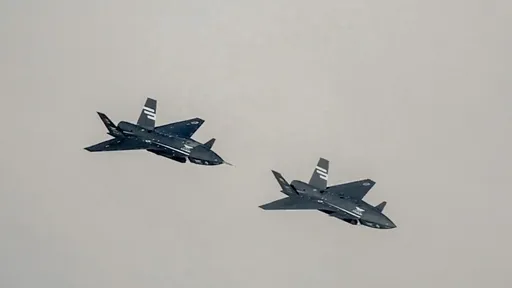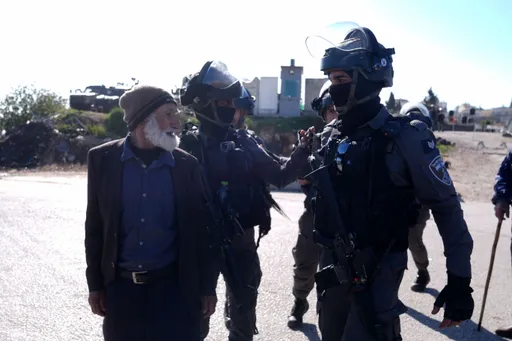President Donald Trump told Israeli and Arab leaders on Tuesday that he intends to move the US embassy in Israel to Jerusalem, a decision that breaks with decades of US policy and risks fuelling violence in the Middle East.
Trump spoke separately on Tuesday with five Middle East leaders about "potential decisions regarding Jerusalem" amid reports he plans to move the US Embassy to the city, the White House said in a statement.
The president on Wednesday is expected to recognise Jerusalem as Israel's capital while delaying relocating the embassy from Tel Aviv for another six months, though he plans to order his aides to immediately begin planning such a move, said Senior US officials.
TRT World's Frank Ucciardo reports.
White House spokeswoman Sarah Sanders said that Trump, who promised during the presidential campaign to move the embassy in Israel, would give a speech on Wednesday about his Jerusalem decision.
"The president I would say is pretty solid in his thinking at this point," she said, declining to provide details.
TRT World'sGiles Gibson reports from Washington DC.
US endorsement of Israel's claim to all of Jerusalem as its capital would reverse long-standing US policy that the city's status must be decided in negotiations with the Palestinians, who want East Jerusalem as the capital of their future state.
The international community does not recognise Israeli sovereignty over the entire city, home to sites holy to the Muslim, Jewish and Christian religions.
Israel captured Arab East Jerusalem in the 1967 Middle East war and later annexed it, an action not recognised internationally.
Concerns over Trump's intention
Trump notified Palestinian President Mahmoud Abbas "of his intention to move the American Embassy from Tel Aviv to Jerusalem," Abbas spokesman Nabil Abu Rdainah said.
Abbas, in response, "warned of the dangerous consequences such a decision would have to the peace process and to the peace, security and stability of the region and of the world" and also appealed to the Pope and the leaders of Russia, France and Jordan to intervene.
Senior US officials told Reuters some officers in the State Department were also deeply concerned and the EU, the Palestinian Authority, Saudi Arabia and the Arab League all warned that any such declaration would have repercussions across the region.
When the US embassy to move?
None of the leaders' statements said whether Trump specified the timing of an embassy move, a notion supported by successive governments in Israel, a close US ally.
But US officials, speaking on condition of anonymity, said Trump was expected to sign a national security waiver - as have his predecessors - keeping the embassy in Tel Aviv for another six months but would commit to setting the move in motion.
However, he was not planning to set a specific timetable, the officials said.
The Trump administration would need time to overcome logistical issues such as lack of a secure embassy building and staff housing in Jerusalem, according to one US official.
US-Israeli relations
The White House said that Trump had also spoken with Israeli Prime Minister Benjamin Netanyahu, a longtime proponent of a US embassy move to Jerusalem.
Netanyahu's office did not respond to a request for comment, but a senior Israeli minister welcomed Trump's decision while vowing that Israel would be prepared for any outbreak of violence.
Trump appears intent on satisfying the pro-Israel, right-wing base, including evangelical Christians, that helped him win the presidency but was disappointed when he delayed the embassy move in June. No other country has its embassy in Jerusalem.
Israel prepares for 'every option'
Israeli Intelligence Minister Israel Katz, who met last week with US officials in Washington, told Israel's Army Radio, "My impression is that the president will recognise Jerusalem, the eternal capital of the Jewish people for 3,000 years, as the capital of the state of Israel.”
Asked whether Israel was preparing for a wave of violence if Trump recognises Jerusalem as the Israeli capital, he said, "We are preparing for every option. Anything like that can always erupt. If Abu Mazen (Palestinian President Mahmoud Abbas) will lead it in that direction then he will be making a big mistake.”
Asked whether Trump recognised that his Jerusalem decision could spark violence, Sanders said, "A number of things have been looked at that have been weighed into the president's decision."
Security message by US consulate in Jerusalem
The US Consulate in Jerusalem instructed employees on Tuesday to stay away from the occupied West Bank and parts of Jerusalem after Trump told Middle East leaders he planned to move the US Embassy in Israel to the holy city.
Palestinian factions in Gaza and the West Bank issued calls on Tuesday for protests against Trump's expected moves on Jerusalem.
"With widespread calls for demonstrations beginning Dec. 6 in Jerusalem and the West Bank, US government employees and their family members are not permitted until further notice to conduct personal travel in Jerusalem's Old City and in the West Bank," the US consulate said in a security message.
"United States citizens should avoid areas where crowds have gathered and where there is increased police and/or military presence," the message said.
Future of peace talks
A US official said the consensus US intelligence estimate on US recognition of Jerusalem as Israel's capital was that it would risk triggering a backlash against Israel, and also potentially against US interests in the Middle East.
It is also likely to upset an Israeli-Palestinian peace push led by Trump's son-in-law and senior adviser, Jared Kushner, in pursuit of what the US president has called the "ultimate deal." The initiative has made little progress.
The White House said in a statement that in calls with Israeli and Arab leaders, Trump "reaffirmed his commitment to advancing Israeli-Palestinian peace talks" and "underscored the importance of bilateral cooperation with each partner."
The EU's top diplomat, Federica Mogherini, said on Tuesday that "any action that would undermine" peace efforts to create two separate states for the Israelis and the Palestinians "must absolutely be avoided."























